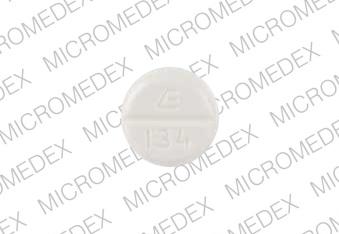Reserpine Disease Interactions
There are 5 disease interactions with reserpine.
Rauwolfia alkaloids (applies to reserpine) depression
Major Potential Hazard, High plausibility.
The use of rauwolfia alkaloids is contraindicated in patients with a history of mental depression, especially suicidal tendencies. Rauwolfia alkaloids depletes catecholamine and serotonin stores.
Rauwolfia alkaloids (applies to reserpine) PUD/ulcerative colitis
Major Potential Hazard, High plausibility. Applicable conditions: Inflammatory Bowel Disease, Peptic Ulcer
The use of rauwolfia alkaloids is contraindicated in patients with active peptic ulcer or ulcerative colitis. Since rauwolfia alkaloids increase gastrointestinal motility and secretion, these conditions may be aggravated. Therapy with rauwolfia alkaloids should be administered cautiously in patients with a history of peptic ulcer or ulcerative colitis because of the risk of reactivation.
Antiadrenergic (peripheral) (applies to reserpine) peripheral edema
Moderate Potential Hazard, Moderate plausibility. Applicable conditions: Fluid Retention
Peripheral- acting antiadrenergic agents can cause peripheral edema. Therapy with peripheral- acting antiadrenergic agents should be administered cautiously in patients adversely affected by sodium and water retention.
Rauwolfia alkaloids (applies to reserpine) biliary colic
Moderate Potential Hazard, Moderate plausibility. Applicable conditions: Cholelithiasis
Rauwolfia alkaloids increase gastrointestinal motility and secretion and can precipitate biliary colic in patients with gallstones. Therapy with rauwolfia alkaloids should be administered cautiously in patients with a history of gallstones.
Rauwolfia alkaloids (applies to reserpine) renal dysfunction
Moderate Potential Hazard, High plausibility.
In general, lowering the blood pressure may cause some decrease in renal function. Therefore, rauwolfia alkaloids should be used with caution in patients with renal impairment, since these patients may adjust poorly to the hypotensive effects of these agents.
Switch to professional interaction data
Reserpine drug interactions
There are 305 drug interactions with reserpine.
Reserpine alcohol/food interactions
There is 1 alcohol/food interaction with reserpine.
More about reserpine
- Check interactions
- Compare alternatives
- Reviews (3)
- Drug images
- Side effects
- Dosage information
- During pregnancy
- Drug class: antiadrenergic agents, peripherally acting
- Breastfeeding
Related treatment guides
Drug Interaction Classification
| Highly clinically significant. Avoid combinations; the risk of the interaction outweighs the benefit. | |
| Moderately clinically significant. Usually avoid combinations; use it only under special circumstances. | |
| Minimally clinically significant. Minimize risk; assess risk and consider an alternative drug, take steps to circumvent the interaction risk and/or institute a monitoring plan. | |
| No interaction information available. |
See also:
Further information
Always consult your healthcare provider to ensure the information displayed on this page applies to your personal circumstances.


